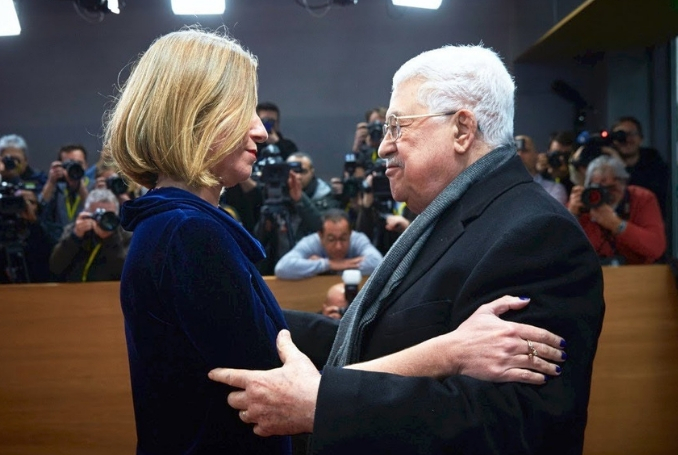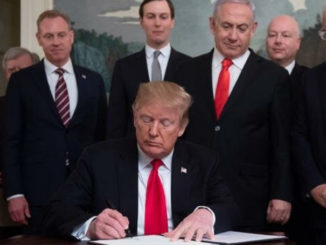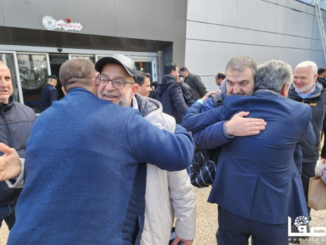
By Ramona Wadi
Palestinian school textbooks are once again under public scrutiny, this time after a report published by Israel’s Institute for Monitoring Peace and Cultural Tolerance in School Education (IMPACT-se) claimed that material was “more radical than previously published”.
The EU has since confirmed that it will be funding an assessment to be carried out “by an independent and internationally recognized research institute.”
According to IMPACT-se,
“This new curriculum deliberately omits any discussion of peace education or reference to any Jewish presence in Palestine before 1948.”
EU Foreign Affairs Representative Federica Mogherini said that the study will identify “possible incitement to hatred and violence and any possible lack of compliance with UNESCO standards of peace and tolerance in education.”
Once again, the Palestinians are being coerced into adopting standards determined by the political actors that have normalized Israel’s colonial presence in Palestine. The question is not whether there is any reference to the Jewish presence in Palestine, but why there is such concentrated opposition to Palestinians asserting their own history and identity, both bludgeoned by Israel in the ongoing Nakba.
Lest anyone forgets, the entire international community has, in one way or another, endorsed the Zionist narrative when it comes to Palestine. This narrative leaves no space for Palestinians to assert their indigenous presence in Palestine before 1948; the “land without a people for a people without a land” myth and subsequent variations of it were used by the Zionists to justify their intent to colonize Palestine, as well as its implementation.
It is the Zionist narrative that has eliminated Palestinians. In escaping from that premise, it is clear that Palestinians have an obligation towards their own people, history, and memory if they are to fight against the complete disappearance of their own identity as a distinct people under Israeli oppression supported by the international community.
It is imperative that Palestinians set their own agenda by their own standards. Israel has done so in contempt of human rights violations and its actions are now normalized as “security concerns” and “self-defense” by the international community.
Palestinians have legitimate reasons to pursue their own liberation trajectory – a right granted by international law – yet they are constantly expected to abide by international norms which do not address the specifics of Israel’s ongoing colonial expansion and violence.
UNESCO describes peace education as “promoting peace-building through education in situations of both conflict and peace.” The terminology used is ideal for the international community, which has spent decades reinventing Israel’s colonialism in Palestine as the “Israeli-Palestinian conflict” that can purportedly be solved through “peace negotiations”.
There couldn’t have been a better combination for the EU to promote its diplomacy. UNESCO’s promotion of normalized discourse to alter the possibilities of education is a harmful agenda for Palestinians and an opportunity for the EU to portray itself as abiding by international norms.
Since there is no collective criticism of these accepted norms, any action that shows the slightest hint of legitimate repudiation in favor of a stance that clearly speaks for the oppressed – in this case, the Palestinian people – the EU can continue to recruit individuals and institutions to reinforce what is accepted at an international level.
Palestinian textbooks and their content, however, have not emerged from a vacuum. The EU should not be funding studies that impede Palestinians from asserting their right to historic Palestine in their own educational curriculum. On the contrary, it should be calling out Israel’s presence in Palestine as a permanent form of colonial violence and incitement.
– Ramona Wadi is a staff writer for Middle East Monitor, where this article was originally published. She contributed this article to the Palestine Chronicle.








UNESCO should investigate what David Sheen is revealing about Israels education system and their books see https://youtu.be/ew13LfxrTa8?t=3165
One has to have knowledge about the Jewish supremacy in the Talmud to decode it